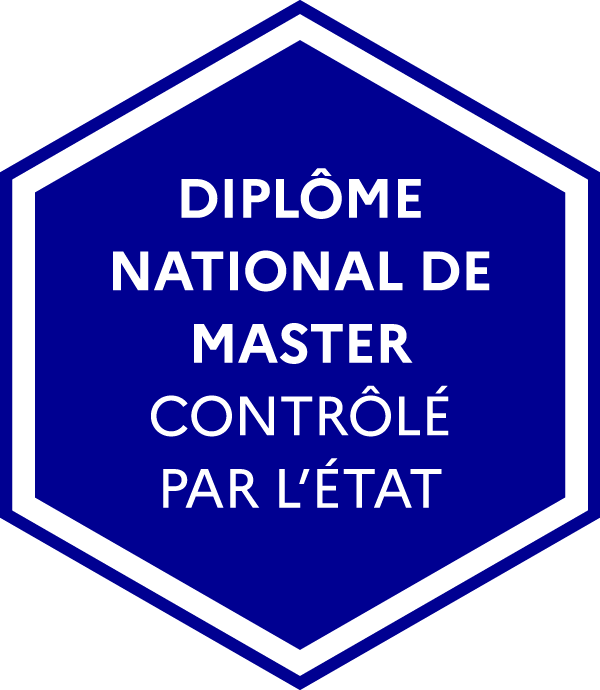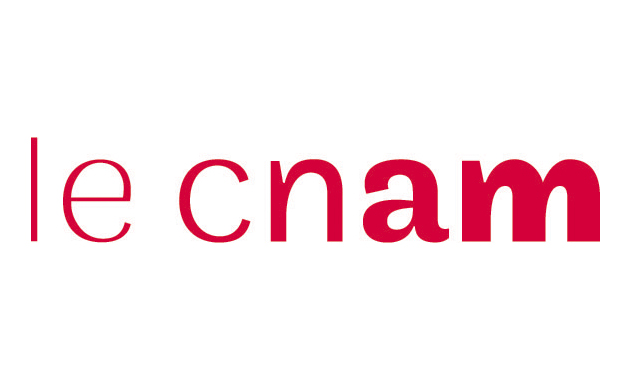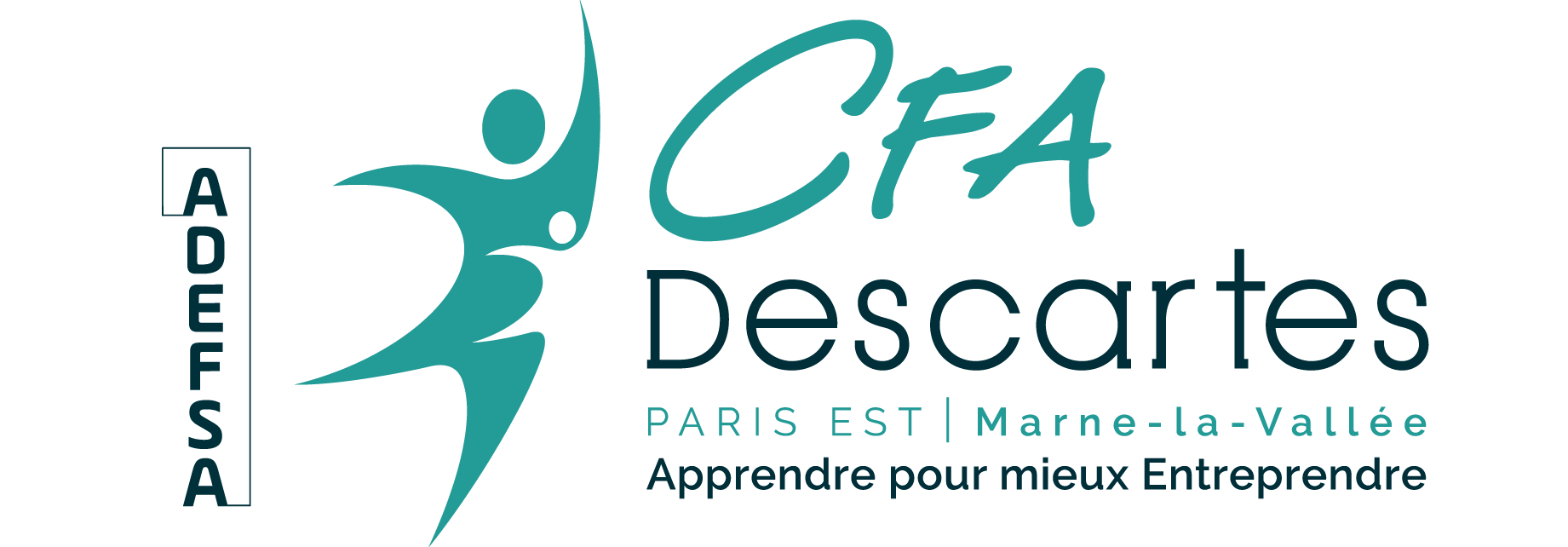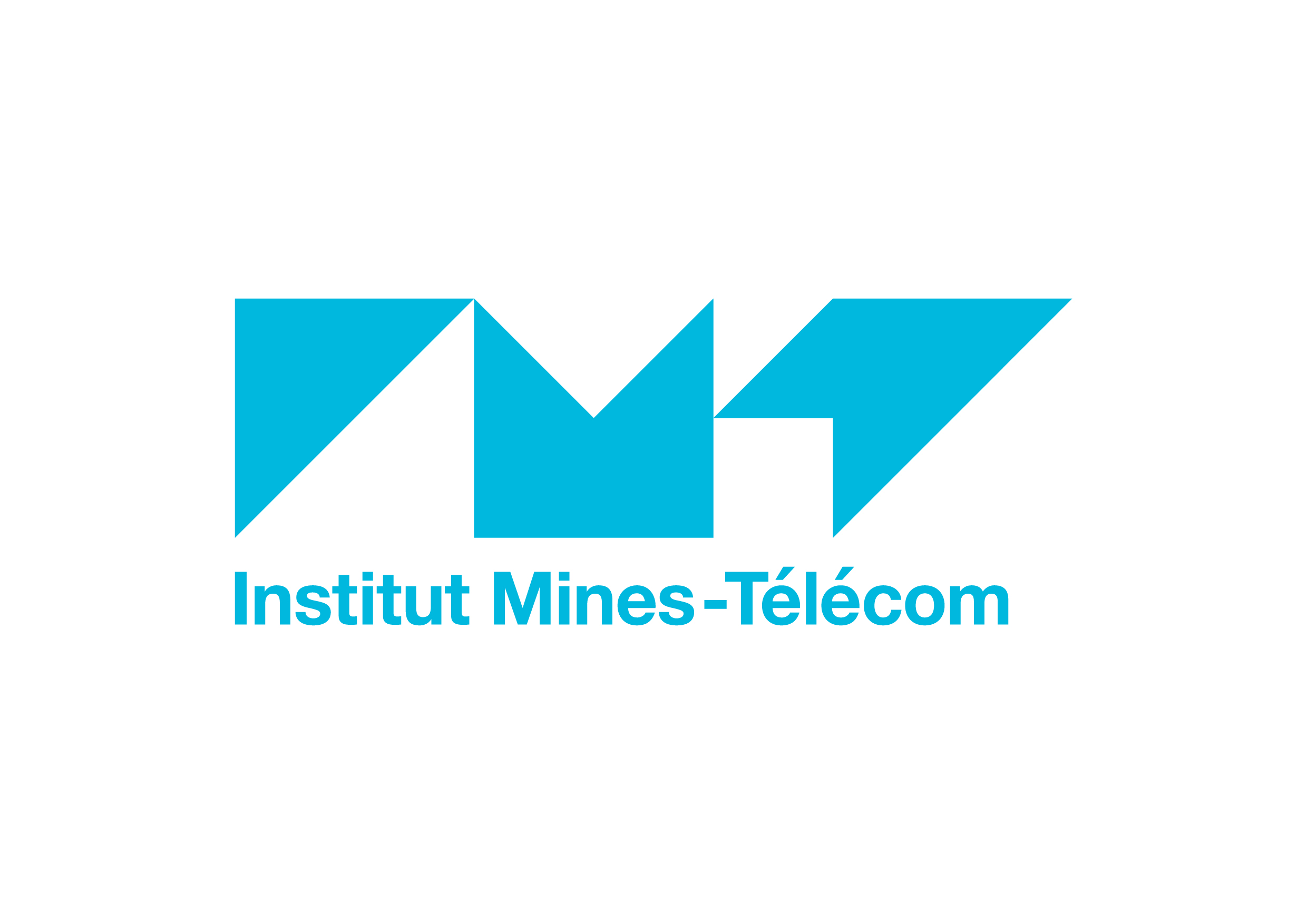Master's degree Technologies and telecommunications


Entry requirements
For M1, a high school diploma plus three years of higher education in science. For M2, a high school diploma plus four years of higher education in science. Recruitment on the basis of application.
Benefits of the program
The course is supported by the ESYCOM Laboratory’s excellent skills in the subjects taught and state-of-the-art lessons are given on its research topics. Speakers from the industry present seminars on rapidly changing fields.
Part of the curriculum is taught in English, thereby preparing students for entry into the industrial or research sector.
Acquired skills
The objective of the course is to provide solid scientific and technical skills, needed to understand the functioning of the infrastructure of telecommunication networks and communication systems.
The course covers 2nd, 4th and 5th-generation mobile network design, architectures and protocols (radio and core), digital communications, networks and routing, local networks and internet services, QoS, virtualisation / SDN, object-oriented computing, propagation and antennas, electromagnetics, and electronics for telecommunications.
It therefore addresses architectures and protocols of all generations of mobile networks, as well as IP protocols and routing for fixed networks. Computer science is used in increasingly complex systems. Students will comfortably master two popular programming languages by the end of the course. Furthermore, students will also acquire the foundations of mathematics for signal processing and digital communications, solid skills in electronic and digital design, and understanding of the fundamental principles of electromagnetic waves, their propagation in the mobile/HF radio environments and related antenna systems. Lastly, students will understand network virtualisation and new technologies.
International
Students can complete their work placement abroad and access support from the university’s International Relations Department. Students also have the possibility to study abroad during M2, within the framework of an agreement that establishes the equivalence between teaching units. Such agreements are established with the programme coordinator and the university’s International Relations Department.
Capacities
25
Course venue
Your future career
In the field of telecommunications, the professional opportunities are broad: design and development engineer (software or software functions and / or embedded software), network and telecom deployment coordinator engineer, project manager in companies or administrations, developer of telecom products or embedded systems, information systems integrator operating networks or service providers (operators, ISP), network coverage and/or mobile terminal validation engineer, radio transmission and architecture engineer, test and integration engineer.
Study objectives
The objective is to train students in the field of telecommunication networks. This includes the activity sectors of suppliers, mobile terminal manufacturers, information and telecommunications system integrators, mobile and fixed network operators, mobile service providers, access providers and Internet service providers. With the explosion of smartphones in the connected devices market, there has been renewed activity in mobile and fixed networks in the past ten years. A revolution is coming, with these two fields converging towards shared infrastructure, both physical and virtual, including technologies around cloud computing. The Master’s involves multidisciplinary and transversal teaching, to satisfy the needs of these new telecom systems. The skills targeted in this degree are structured around three main axes: networks and telecoms, computer science and electronics.
Faced with the multiplicity and convergence of networks, companies need specialists in networking, telecommunications and new technologies to make the right choices.
Major thematics of study
Mobile Telecommunications, Computer Science/Networks, Electronics, English, Business Management, Work placement
Calendar
Classes: October to March
Mandatory work placement: April to September (four to six months during this period)
Options
For M2, students must choose one of the following two groups of three optional units:
- Advanced network performance
- HF transmission
- Propagation channels
or
- Virtualisation/Openstack
- Network security
- Advanced network programming
Semester 3
| Courses | ECTS | CM | TD | TP |
|---|---|---|---|---|
|
Télécommunications mobiles
| ||||
|
Antennes : fonctionnement et propriétés
Ce cours présente dans un premier temps les différentes caractéristiques d’antennes (directivité, gain, efficacité de rayonnement, impédance d’entrée…) afin d’être capable de choisir une antenne pour une application spécifique. Dans un deuxième temps, il se concentre sur le rayonnement d’un dipôle élémentaire et le calcul théorique de ses propriétés. Enfin, une introduction aux réseaux d’antennes est présentée (facteur de réseau).
Teaching language FRANÇAIS / FRENCH | 1 | 9h | 3h | |
|
Communications numériques
Ce cours présente les bases théoriques sur la couche PHY (radio interface) pour comprendre les choix techniques des normes des réseaux mobiles
Teaching language FRANÇAIS / FRENCH | 3 | 27h | 5h | |
|
Réseaux mobiles
Ce cours présente une description des normes mobiles de la 2G à la 5G : dimensionnement cellulaire, schéma d’accès multiple, canal de propagation radio-mobile, radio & cœur (architectures, interfaces, protocoles),
Teaching language FRANÇAIS / FRENCH | 3 | 30h | 3.5h | 5h |
|
Informatique/Réseaux
| ||||
|
Programmation C++/Python/Java
Ce cours présente une introduction aux systèmes d’exploitation et au systéme UNIX, et une pérsentation détaillée de la Programmation Objet Java et C++
Teaching language FRANÇAIS / FRENCH | 2 | 24h | 6h | 12h |
|
Architecture et Réseaux TCP/IP
Architecture, Protocoles and services, Réseaux LAN et WAN. Administration des réseau: la couche réseau et IP, le routage, la couche transport et TCP, les services
Teaching language FRANÇAIS / FRENCH | 3 | 21h | 10h | 12h |
|
Réseaux Virtuels
Ce cours présente une introduction aux technologies promulguées par l'arrivée de la 5G Cloud networking architecture (SDN)/Virtualisation (NFV).
Teaching language FRANÇAIS / FRENCH | 1 | 12h | ||
|
Digital integrated circuits
Design of digital integrated circuits : architecture of digital devices; VHDL, description and simulation of a digital device; Programmable circuits as FPGA; Application on FPGA devices. Data acquisition : elementary chain of data acquisition; data flow. | ||||
|
Circuits RF
Connaître les paramètres fondamentaux des circuits pour des applications RF (applications de télécommunication). LNA, mélangeur de bruit, amplificateur de puissance.
Teaching language FRANÇAIS / FRENCH | 2 | 9h | 6h | |
|
Technologies des circuits programmables et mémoires
Technologies permettant de rendre un circuit numérique programmable et propriétés associées. Technologies et propriétés des mémoires.
Teaching language FRANÇAIS / FRENCH | 2 | 18h | 4h | |
|
Electromagnétisme appliqué
Compatibilité électromagnétique : sources de perturbation, effets, protections, mesures
Teaching language FRANÇAIS / FRENCH | 2 | 12h | 2h | |
|
English
Written and spoken english. | 3 | |||
|
Entreprise
| ||||
|
Gestion d'entreprise
Présentation de l'entreprise (fonction, statut), styles de management, grandes fonctions de l'entreprise, droit du travail, activité commerciale. Etude d'un cas pratique.
Teaching language FRANÇAIS / FRENCH | 2 | 4h | 9h | |
|
Séminaires Industriels, CVs
Séminaires industriels sur des sujets de pointe en lien avec la formation. Soutien dans la réalisation du CV et pour les entretiens.
Teaching language FRANÇAIS / FRENCH | 24h | |||
|
Analyse de Cycle de Vie
| 3h | 9h | ||
|
Radio -
| ||||
|
Performances Réseaux avancées
L'objectif est de fournir des connaissances sur les aspects de la gestion de la QoS/QoE, de l'analyse des KPIs mesurés au sein d'un réseau mobile et de la plannification. modélisation et simulation.
Teaching language FRANÇAIS / FRENCH | 2 | 6h | 3h | 6h |
|
Transmissions HF
Rappels sur les caractéristiques des principaux supports de transmission (paire torsadée, coaxial, fibre optique…) Principales relations déduites de l’étude des lignes de transmission (impédance ramenée, ROS, dispositifs d'adaptation en puissance, réflexion…), résolution par utilisation de l’abaque de Smith. Caractérisation des dispositifs RF par la matrice [S]. Matrice de chaîne pour la mise en cascade de quadripôle. Définitions des pertes d’isolation, d’insertion, puissances. Exemple sur un coupleur 3 dB. Transmission par ondes rayonnées. Rappels sur les caractéristiques des composantes de champs rayonnés et sur les antennes (gain, directivité, diagrammes…). Influence de l’environnement sur la propagation des ondes. Applications et exemples sur des bilans de liaison.
Teaching language FRANÇAIS / FRENCH | 2 | 9h | 3h | |
|
Canaux de propagation
Analyse statistique des canaux de propagation (Rayleigh)
Teaching language FRANÇAIS / FRENCH | 2 | 9h | 6h | |
|
Réseau
| ||||
|
Programmation réseau avancée
Programmation Android, réalisation de servlets Java pour mettre en place des services web de type REST
Teaching language FRANÇAIS / FRENCH | 2 | 12h | 16h | |
|
Virtualisation/Openstack
Openstack neutron, containairisation (docker) + Virtual Machine
Teaching language FRANÇAIS / FRENCH | 1 | 9h | ||
|
Sécurité réseaux
Firewall, proxy, NAC, IDS/IPC, archi VPN, IPsec (sécurité IP)
Teaching language FRANÇAIS / FRENCH | 2 | 6.5h | 8h | |
|
Conception de circuits intégrés numériques
Programmation VHDL pour la conception des circuits
Teaching language FRANÇAIS / FRENCH | 1 | 12h |
Semester 4
| Courses | ECTS | CM | TD | TP |
|---|---|---|---|---|
|
Stage de 4 à 6 mois
| 30 |
RICHALOT-TAISNE Elodie (M1-M2)
ALBERI-MOREL Marie-Line (M1-M2)
SPAENS Julia (M1-M2)
Partners




